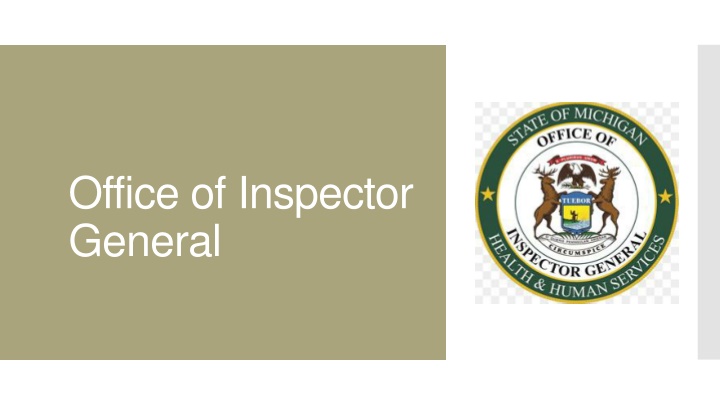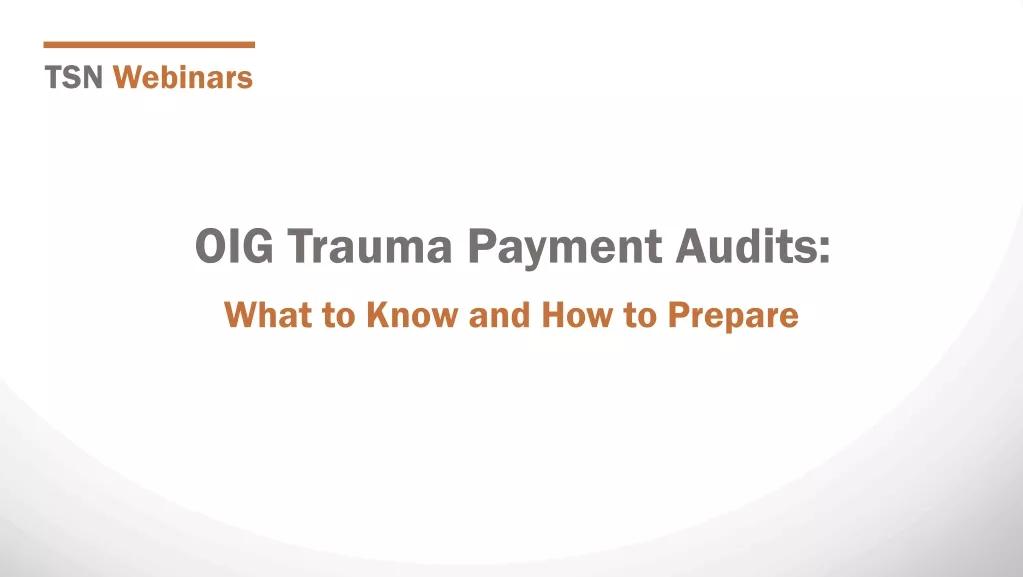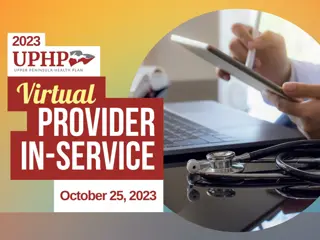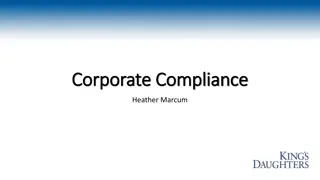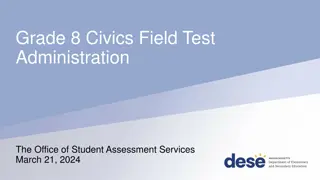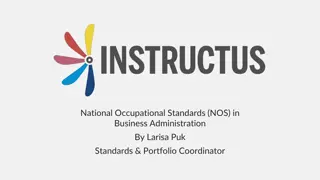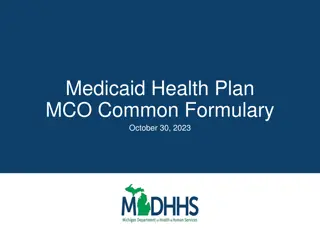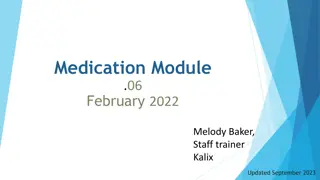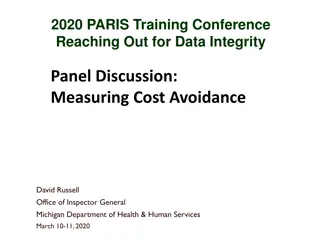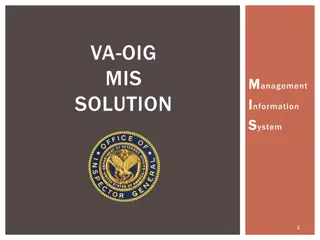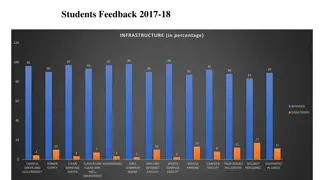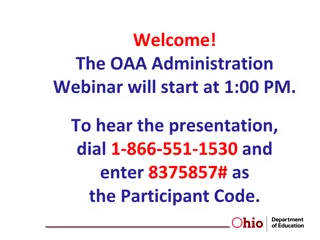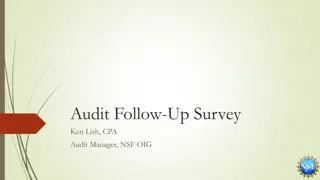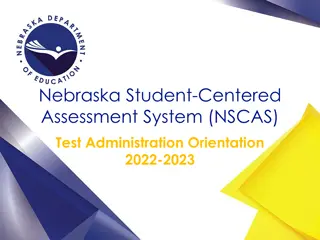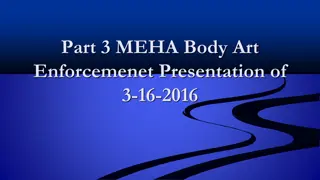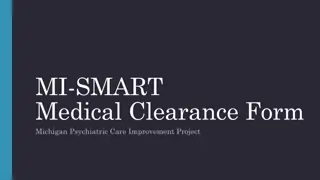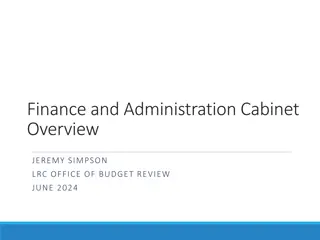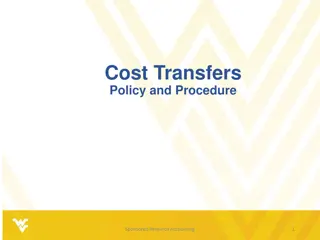MDHHS-OIG Overview: Responsibilities and Administration
MDHHS-OIG, the Office of Inspector General for Michigan's health services, is dedicated to investigating and preventing fraud, waste, and abuse. The Inspector General oversees various divisions that focus on ensuring program integrity and accountability, conducting investigations, and implementing effective policies and procedures. Examples of fraudulent activities in health services are also highlighted.
Uploaded on Mar 04, 2025 | 0 Views
Download Presentation

Please find below an Image/Link to download the presentation.
The content on the website is provided AS IS for your information and personal use only. It may not be sold, licensed, or shared on other websites without obtaining consent from the author.If you encounter any issues during the download, it is possible that the publisher has removed the file from their server.
You are allowed to download the files provided on this website for personal or commercial use, subject to the condition that they are used lawfully. All files are the property of their respective owners.
The content on the website is provided AS IS for your information and personal use only. It may not be sold, licensed, or shared on other websites without obtaining consent from the author.
E N D
Presentation Transcript
Office of Inspector General
MDHHS-OIG Responsibilities The Inspector General is responsible for the following activities: (a) Investigate fraud, waste, and abuse in programs administered by MDHHS (b) Make referrals for prosecution and disposition of appropriate cases as determined by the inspector general. (c)Review administrative policies, practices, and procedures. (d) Make recommendations to improve program integrity and accountability. (e) Fulfill program integrity functions required by the Centers for Medicare and Medicaid Services (CMS) under 42 CFR 455.13-17, .21-23, and .500-518 3
MDHHS-OIG Administration MDHHS-OIG is comprised of three divisions: Integrity Division focused on provider fraud, waste, and abuse Investigative Two sections, each comprised of three teams of investigators Contract and Vendor Oversight Provider Sanctions Enforcement Division focused on beneficiary fraud, waste, and abuse Operations Division Investigative Analytics Unit (IAU) Administrative Services Policy and Training 4
Integrity Division The Integrity Division is responsible for conducting and supervising activities to prevent, detect and investigate provider fraud, waste and abuse within Michigan s health services programs, mainly Michigan Medicaid. What does that consist of? Investigating fraud Post payment review ensuring claims have been properly paid according to policy Identifying and collecting overpayments 5
Fraud, Waste, and Abuse Examples of health services provider fraud, waste and abuse: Billing for services not rendered Billing for medically unnecessary services Upcoding Unbundling Double billing Dispensing generic drugs but billing for brand-name drugs Billing for supplies/medication not dispensed 6
Investigations/Post Payment Reviews MDHHS-OIG Investigations and post payment reviews come from one of two sources: Complaints Received through multiple sources, including providers, former and current employees, beneficiaries, the public, MDHHS Policy, MIHP section Received via phone, email, mail, etc Triaged by section managers, then assigned to a team for investigation Data Mining Ranking by Procedure Code (ex: 99402) Policy violations More complex algorithms designed by the IAU 8
Policy Violations - MIHP Examples: More than 9 visits (maternal) Medicaid Provider Manual, MIHP Chapter, Section 2 Program Components, Subsection 2.1 Maternal Risk Identifier: The initial assessment and up to nine professional visits per woman per pregnancy are billable. More than 1 assessment Medicaid Provider Manual, MIHP Chapter, Section 2 Program Components, Subsection 2.1 Maternal Risk Identifier: The initial assessment and up to nine professional visits per woman per pregnancy are billable. Medicaid Provider Manual, MIHP Chapter, Section 2 Program Components, Subsection 2.2 Infant Risk Identifier: The initial assessment and up to nine professional visits per infant/family are billable. Two or more visits per day Medicaid Provider Manual, MIHP Chapter, Section 2 Program Components, Subsection 2.7 Professional Visits: MIHP providers are eligible for Medicaid reimbursement for one professional visit per beneficiary on the same date of service, regardless of the place of service. Visits beyond the established limit cannot be billed to the beneficiary or Medicaid. 9
Extrapolation The methodology of estimating an unknown value by projecting with a calculated precision (i.e., margin of error) the results of a reviewed sample to the universe from which the sample was drawn. 10
Post Payment Review Process Initial call from investigator Field visit (announced or unannounced) Record review Contact from investigator regarding results of record review 11
Post Payment Review Process (continued) If an overpayment is identified: Notice of Preliminary Findings If no response or no documentation, Final Notice of Recovery If documentation is submitted, Reconsideration Response Appeals Claim adjustments/Gross Adjustments/Voids by Claims Processing Repayment 12
Additional Notes Keep in contact with your investigator Email Encounter claims 13
Questions? MDHHS-OIG Hotline: 1-855-643-7283 (1-855-MI-FRAUD) MDHHS-OIG Email: MDHHS-OIG@michigan.gov 14
